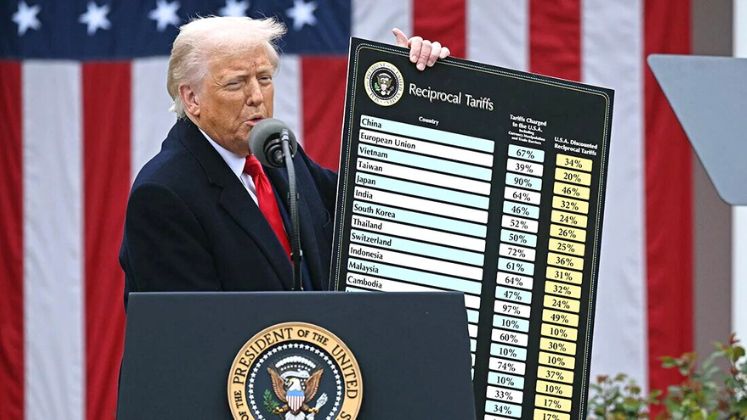
In an effort to combat alleged unfair trade practices, President Donald Trump’s “Reciprocal Tariffs” policy has seen the United States impose a 37 per cent tariff on imports from Bangladesh.
According to a chart released by the White House, Bangladesh imposes an effective tariff of 74 per cent on American goods. In retaliation, the US will implement a “discounted reciprocal tariff” of 37 per cent on Bangladeshi exports to the US market.
This tariff measure is part of Trump’s “Liberation Day” trade initiative, which establishes a baseline 10 per cent tariff on all imports while imposing higher rates on countries accused of engaging in protectionism, currency manipulation, or implementing non-tariff barriers against US products.
The Bangladeshi economy, heavily reliant on garment exports to the US, could face severe repercussions from this tariff increase. Industry leaders in Dhaka have expressed concerns that the hike could undermine the country’s competitive position in the global market.
Additionally, India and Pakistan are also impacted by these new tariffs, with the US imposing rates of 26 per cent and 29 per cent respectively, citing their high trade barriers on American goods.






